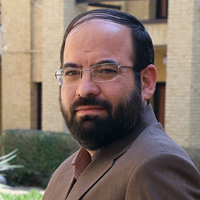The components of the efficiency of the religious political system from the perspective of the Supreme Leader
The issue of efficiency is one of the most challenging issues in the field of political science, which is more important in the Islamic Republic of Iran due to the religious nature of the government. As regards efficiency is a value category, it is necessary to study it based on the theoretical foundations of any political system. Accordingly, in this article, an attempt has been made to study the discourse of the Supreme Leader of the Revolution about the efficiency of the religious political system and answer the question, what are the components of the efficiency of the religious political system in the discourse of the Supreme Leader?. The Practical Discourse Analysis Method (PDAM) has been used as a method. The theoretical model of the research is based on 4-level analysis of efficiency (idea, structure, agent and performance). The analysis of the Supreme Leader's discourse shows that his main idea is the category of Islamic government based on Velayat-e-Faqih, and the efficiency of the political system at the four levels is also based on this idea. Components such as responding to the needs of the time at the idea level, structure based on justice and competence at the structural level, simplicity and courage at the agent level, and legalism at the performance level have been identified as efficiency components.
-
نمازجمعه نصر؛ نماد بازدارندگی مردم پایه با تیکه بر وحدت ملی و انسجام اسلامی
نامه هویت، آبان 1403 -
The Priority of "Trend-oriented view" to "Event-oriented view" in Analyzing the Transaction of the Century and Dealing with it (2019-2022)
, Mohammad Mohammadi *
Journal of Diplomatic Interactions,



